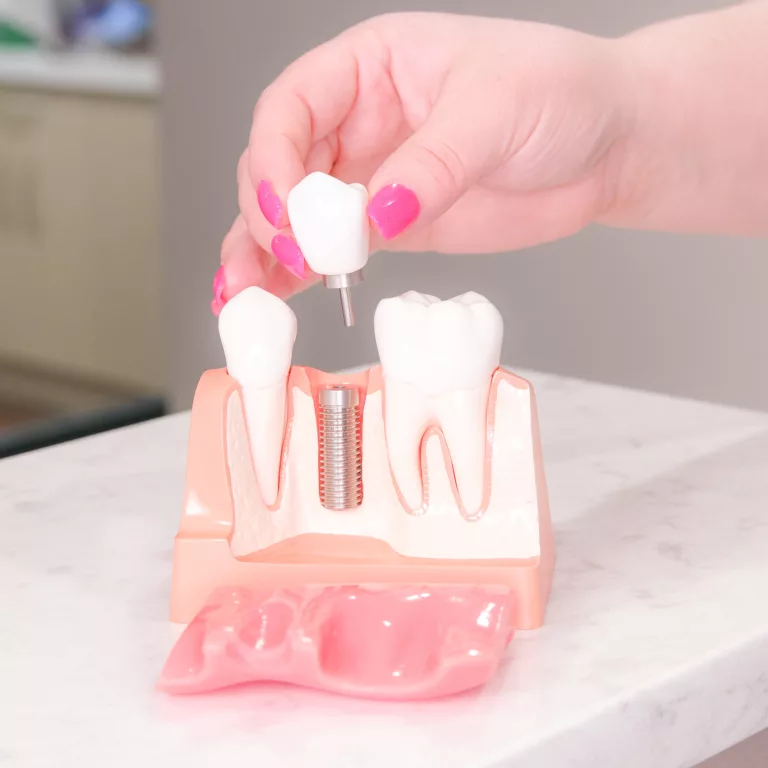Implant & Periodontal Therapy

Dental Implants
Permanently Replacing Missing Teeth
The best dental implants are designed to provide a foundation for replacement teeth that look, feel, and function like natural teeth. Regain the ability to eat virtually anything and to smile with confidence, knowing your teeth appear natural and that facial contours will be preserved. The implants are tiny titanium posts which are placed into the jaw bone where teeth are missing. The bone bonds with the titanium, creating a strong foundation for artificial teeth. In addition, dental implants can help preserve facial structure, preventing the bone deterioration which occurs when teeth are missing.
Evaluation for Dental Implants
If, like many others, you feel implant dentistry is the choice for you, we will reserve you a consultation appointment with our periodontist Dr. Marc Pearlstein. During these consultation visits, your specific needs and considerations will be addressed. Your questions and concerns are important to us and our team will work with you very closely to help you achieve your dental goals.
Dental Implant Procedure
Dental implants are metal anchors, which act as tooth root substitutes. They are surgically placed into the jaw bone. Small posts are then attached to the implant, which protrude through the gums. These posts provide stable anchors for artificial replacement teeth.
For most patients, the placement of dental implants involves two surgical procedures. First, implants are placed within your jaw bone. For the first three to six months following surgery, the implants are beneath the surface of the gums, gradually bonding with the jaw bone. If desired, we will provide you with a temporary solution for your missing teeth.
After the implants have bonded to the jaw bone, we will designs the final bridgework or dentures. Posts or attachments will be connected to the implants. The replacement teeth are then made over the posts or attachments. The entire procedure usually takes 6 to 8 months, and most patients do not experience any disruption in their daily life. If you want the best dental implants, Lund Dental Associates in Stoneham, MA, is your destination!
Replacing Missing Teeth
Implant Placement Overview
Bone Grafting Implants
After Implant Placement
Implant Crowns & Bridges
Implant Supported Overdenture
Periodontal Treatments
What You Need to Know to Keep Your Gums & Smile Healthy
We thank you for your interest in Lund Dental and for taking the extra step to find out more about your oral health. On this page, you will learn more about your gum health and the options available to you for dental implants. Luckily, Lund Dental Associates in Stoneham, MA, is where you’ll find the best dental implants!
What is Periodontal Disease?
Periodontal means the tissue surrounding your teeth, therefore, your gums. Periodontal disease, or gum disease, is swelling and infection of the bones and ligaments that support your teeth. The majority of patients who come to us with periodontal issues are typically classified as having gum disease. Periodontists specialize in this area and are able to treat every case of gum disease.
Unfortunately, by the time our patients come in, their gum problems have already been an issue for a long period of time.
Common Problems Associated with Gum Disease
- Receding gum lines (“long” teeth & exposed roots)
- Discolored or deteriorating tooth structure
- Gum depressions or black triangles (holes between the teeth and the gum tissue)
- Infected gum line (inflammation and discoloration of the gums)
- Tooth loss or movement

